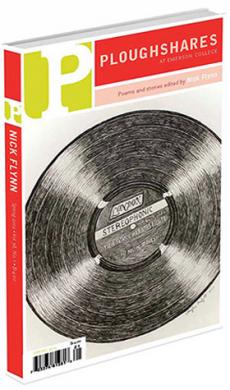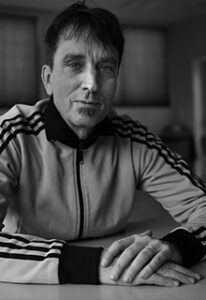Review: Torn: Poems
C. Dale Young’s third book, Torn, is a tug of war between darkness and tenderness. The contest, in Young’s capable hands, frames, influences, or explicitly dictates the book’s more pointed question: are we as empty and limited as the words we depend upon? Poets may know this better than most, but it’s nonetheless a sobering view, and one ironically tested and argued against at every turn by Young’s deeply meditative, tonally supple, linguistically sharp, and clear-eyed lyrics.
The deftly handled “Quiet City” is one of the most successful, most poignant poems to take up poetry’s limits. It begins as reverie, a poet turning to an old fountain pen as he tries to write. The narrative shifts in a single, striking moment, when the speaker compares the evening view (gray pigeons outside the window) to smoky clouds carrying papers (scraps of memos, reports) that floated overhead earlier that morning as “we stood in the street watching the sky.” Can we help but see the morning and aftermath of September 11, 2001—a speaker transfixed by a sky “that steadies itself above a city / circled only by pigeons,” clouds of papery debris? The poem ends perhaps the only way it can: “I may never find the right words to describe this.”
Young’s poems are about much more than the limits of expression. He writes about memories of youthful, conflicted desire (a young boy struggling with the lingering looks he gives other boys); the prejudice, homophobia, and violence that poison society, including the very doctors who are supposed to heal (Young is himself a practicing doctor); and the plaguing self-doubt, whether instigated by religious belief, the “inheritance” of blood, or one’s own failures.
The complex and mysterious poem “Paying Attention” takes up the latter example. Its speaker rhapsodizes about the loving violence of a kind of God-as-muse but simultaneously feels he is “weak” and a liar in God’s eyes. The poem contains some of the book’s most provocative images, combining violence, beauty, and eroticism (e.g., “Spool of lightning, Fist of night-blooming jasmine” and “His tongue like sweetened gasoline”).
Violence and eroticism are what make Young’s poem “The Kiss” so powerful, especially now during our current epidemic of teen suicides and bullying. The speaker imagines a boy assaulted (and kissed) by a homophobic band of older boys; then he witnesses a kiss between two men, but a kiss, we discover, that is actually a threat of violence: “Brutish, that tenderness. Sharp, too.” The poem subtly takes apart the toxic machismo of homophobia that is, at its heart, fearful of what it secretly desires.
“Corpus Medicum” is another poem very much of the moment. It recounts a dream that moves from a cadaver room to a sacristy, where it finds those “special boys [acolytes] who were allowed into the secret / rooms of the Church.” The poem plays on the Latin of medical school and the Latin of the Church, tellingly brought together in the image and word of the Father’s cincture. The final image is chilling: the children’s “dirty hands and mouths were covered, / all hushed by the language of Rome and perfumed / by the incense left clinging to the Monsignor’s large hands.”
On the surface, the overriding wisdom of Torn might seem to be that we cannot rely on art to tell us the whole truth or even depend upon those who are supposed to protect us. And yet the book is also evidence of a poet who is compelled to make visible the darkness around us. Whether or not that itself is an act of tenderness, Young refuses to say for certain. And that is what makes his poetry a crucible where readers must confront their own beliefs—about poetry, society, and themselves.
Christopher Hennessy’s debut book of poems is Love-In-Idleness (Brooklyn Arts Press). He is also the author of Outside the Lines: Talking with Contemporary Gay Poets (University of Michigan Press) and is at work on a second volume of interviews.

